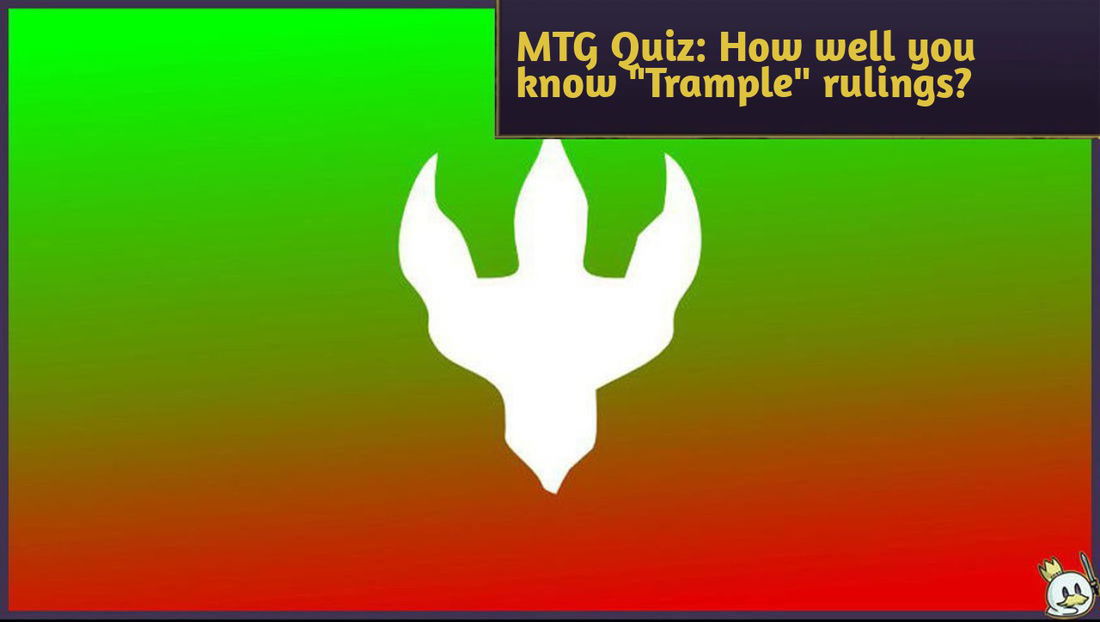The last Magic: The Gathering release for 2024 will take place in November - Foundations marks the return of Core Sets to the game, being an expansion that will bring important reprints and new cards that will remain in Standard for five years, thus being the core of what will sustain the competitive scene for a long time.
With the importance of remaining in the rotating format for so long, Foundations has the mission of bringing some balance to the Metagame, with powerful reprints already planned such as Llanowar Elves and Day of Judgment. In this article, we present other reprints that we would like to see in the expansion to impact the current Standard and maintain the balance of its Metagame in the future!
Reprints We Want to See in Foundations
Colored Spells Answers

It’s standard for core sets to have cards that function as counters to their opposing colors. In the current Standard format, the above spells seem like the most appropriate choice if we consider reprints, with Celestial Purge serving to deal with any permanent of the chosen colors, Aether Gust allowing to dodge Cavern of Souls against Atraxa, Grand Unifier while also being a bounce against Prowess decks, Noxious Grasp and Fry as removal against creatures or Planeswalkers and Autumn’s Veil as a protection spell that doesn’t have the same power level as Veil of Summer.
Check Lands

Check Lands are one of the best land cycles to stay in Standard for a long time. They force mana concessions to come into play untapped, but they interact well with any other cycle that has the basic types to make them easier to access, enabling three-color strategies while also making it easier to access mana in two-color archetypes after rotation.
Gods Willing

Gods Willing is the fairest answer to removal in the game today and allows for some relevant combat tricks in matchups against other Aggro. Protection has been a mechanic that has gradually been replaced by hexproof when it comes to this card category, but Magic's trend is to become increasingly focused on board resources as Midranges begin to take the top of the Metagame - consequently, giving Aggro a way to survive blocks and/or be able to get past them while dealing with removal against a key creature adds more complexity to combat in the coming years.
Light of Hope

Light of Hope is the ideal card category for a core set: it is flexible, has proactive functions while responding well against Aggro decks and the various enchantments of the current Metagame, in addition to its options remaining relevant in the coming years, making it a timeless solution to potential future problems in Standard.
Thalia, Guardian of Thraben

“Go wide” Aggro decks have severe problems dealing with cheap sweepers - an example of this is the transition from Boros Convoke to a splash in blue to add Protect the Negotiators and Negate to the sideboard. A cheap taxing effect tends to be enough to give Aggros a chance to close out the game or better prepare before a sweeper, and Thalia, Guardian of Thraben is probably the best option that remains fair enough by Standard's current power level.
Consider

It's common for core sets to have a cheap cantrip. Since Preordain and Ponder seem unlikely, that leaves Opt, Sleight of Hand and Consider. Since Surveil became an evergreen mechanic a few years ago and there is already a habit of using it on other cards, it seems intuitive that it will become the new common cantrip in Standard without the risk of breaking the format in the coming years.
Spell Pierce

Spell Pierce is, by far, the best generic answer that blue can have and one of the cards that should have the same position in Standard as Duress - that of a timeless staple that always finds a way to stay in the format with a reprint. The difference of one mana to two in Negate matters a lot, both to protect creatures from removal and to resolve problematic cards with higher mana costs - but without necessarily oppressing the space that archetypes have in the Metagame.
Unsummon

It's a bit surprising, but the only instant-speed one-mana bounce effect in Standard today is Into the Flood Maw, and before that, Fading Hope occupied that slot. It's clear that an Unsummon with benefits might be a bit much, but the original version of this effect allows for both interactions with opponent's creatures and protecting your threats from spot removals or sweepers, making it excellent for Tempo strategies.
Fatal Push

There was a time when it would have seemed crazy to have Fatal Push in Standard again. However, low-cost creatures are gradually getting better in the format to the point where they are dominant in the current Metagame, requiring more specific answers for them.
Cut Down, which is only one year away from rotation, is easy to counter with any spot pump and/or Glorious Anthem effect, so we need something more unconditional - Fatal Push fits this pattern, but since Revolt isn't an evergreen mechanic, it is possible to have another variant of this effect without increasing the mana value, similar to Portable Hole.
Necromentia

Necromentia falls into the category of cards that protect Standard from powerful two or three-piece combos. For example, it is a useful safety valve against design mistakes and gives players an opportunity to deal with these strategies without having to worry about them permanently while forcing a “fair game” with their Midrange deck.
Play with Fire

There is a demand in the current Standard design for a Shock with benefits. Play with Fire has become a staple in the format and in Pioneer, and it is possible that it will eventually replace the current burn spell design with power creep. A Sorcery-Speed Lightning Strike with Scry 1 would not be an unpleasant surprise either.
Grim Lavamancer

It's been a while since Grim Lavamancer made any impact on competitive Magic. With the rise of red decks in Standard and Pioneer, this would be a good time to consider its inclusion as a way to give Mono Reds and other similar archetypes more breathing room during the seasons where it will be legal, while also giving Aggro's graveyard more usability.
Rampant Growth

Standard is getting faster. Proof of this is in Foundations itself with the reprints of Llanowar Elves and Day of Judgment, and if the pace of the Metagame is increasing, it is necessary to improve the quality of Ramp in the format to keep this strategy viable in the coming years.
Farseek is another option in this category, but its interaction with Surveil Lands could be a problem eventually. Cultivate feels obsolete compared to Overlord of the Hauntwoods today, but it also seems viable for a long-term reprint.
Grafdigger’s Cage

Grafdigger’s Cage is a safety valve against any strategy that aims to abuse graveyard interactions to set bombs like Atraxa, Grand Unifier or Valgavoth, Terror Eater. It also works to check effects that search for creatures from the deck and/or put them onto the battlefield from the top, like Collected Company, Winota, Joiner of Forces or Kayla’s Reconstruction.
Pithing Needle

Like Spell Pierce, Pithing Needle is a card that should always have been in Standard. Its ability to lock Planeswalkers and other one-mana activated abilities in any deck creates many ways to prevent these permanents from taking over the format's Metagame.
Wurmcoil Engine

In the past, Wurmcoil Engine would have seemed like an absurd reprint for Standard, but times have changed and the Overlords cycle in Duskmourn is proof that being mechanically similar to the M11 Titans is no longer enough to become a Standard staple.
What makes it attractive for the format today is how it fits into different game spectrums: it has abilities that punish Aggro if it stays in play, forces unfavorable trades against Midrange's removals (and avoids Go for the Throat), and also works as a payoff for Ramp decks that will lose their main card next season.
Conclusion
That's all for today!
If you have any questions or suggestions, feel free to leave a comment!
Thanks for reading!













— Comments 0
, Reactions 1
Be the first to comment